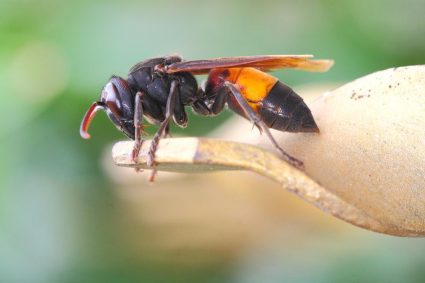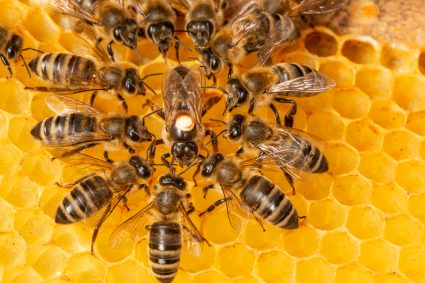
Owning a skunk might not be the first thing that comes to mind when considering a pet, but for some, these unique creatures are just the right fit. However, owning a skunk as a pet is not as straightforward as owning a dog or a cat. There are several legal considerations to keep in mind, the most important of which is obtaining a skunk permit. This article will guide you through the process of obtaining a skunk permit, the costs involved, and the legal implications of not having one.
To get a skunk permit, visit your state’s wildlife department’s website and look for information on wildlife or restricted species permits. Download the permit application form, fill it out with your personal details and information about the skunk you wish to own, and pay the application fee, which can range from $25 to $100. Submit the completed form to the wildlife department. Be aware that not having a permit can lead to legal consequences, including fines and penalties.
What is a Skunk Permit and Why Do You Need One?
A skunk permit, often referred to as a Restricted Species Permit, is a legal authorization required to own, exhibit, or sell a skunk. Skunk ownership laws vary from state to state, and in some cases, by county. In the United States, pet skunks can be purchased from licensed animal shelters, non-profit skunk educational organizations, or breeders with a permit from the U.S. Department of Agriculture’s Animal and Plant Health Inspection Service. Some states may require additional permits for selling or exhibiting skunks, in addition to the USDA permit.
The purpose of obtaining a skunk permit is to ensure that the owner is knowledgeable about the care and handling of skunks, and that the skunk is obtained from a licensed source. It also helps regulate the sale and possession of skunks, preventing illegal trade and promoting responsible ownership.
How to Apply for a Skunk Permit
The process of applying for a skunk permit varies depending on the state. Here is a general step-by-step process:
- Visit the website of your state’s wildlife department.
- Look for information on wildlife permits or restricted species permits.
- Download the permit application form.
- Fill out the form with your personal information and details about the skunk you wish to possess.
- Pay the application fee. The fee varies by state, but it can range from $25 to $100.
- Submit the completed application form to the wildlife department.
Keep in mind that the application process might take anywhere from a few weeks to several months, depending on your state’s regulations.
What are the Legal Implications of Not Having a Skunk Permit?
Not having a skunk permit can lead to legal consequences, which vary by state. If you own a skunk without the necessary permits, you may face fines, penalties, or even criminal charges. In some cases, your skunk may be confiscated, and you may be required to surrender it to the authorities.
What to Do If You Encounter Difficulties During the Application Process
If you encounter difficulties or issues during the skunk permit application process, you should:
- Contact the relevant agency.
- Seek assistance from a biologist or expert.
- Review the application guidelines and requirements.
- Ensure your application is complete.
- Follow up on your application.
- Seek help from other permit holders.
Conclusion
Obtaining a skunk permit is a crucial step for anyone considering owning a skunk. It ensures that you are legally permitted to own the animal and that you understand the responsibilities that come with it. Always remember to check your state and local laws before getting a skunk as a pet.
While it might seem like a daunting process, with patience and diligence, you can navigate the legalities and enjoy the unique companionship that a pet skunk can offer.
Frequently Asked Questions
Can I own a skunk in any state in the U.S.?
No, not all states in the U.S. allow skunk ownership. Some states, such as California, Georgia, and Hawaii, completely ban skunk ownership. Others, like Florida and Texas, allow it with a permit. It’s crucial to research your specific state’s laws regarding skunk ownership.
What is the lifespan of a pet skunk?
A domesticated skunk typically lives for about 10 years, although they can live up to 15 years with proper care.
What do skunks eat?
Skunks are omnivores, meaning they eat both plant and animal material. In the wild, they eat a variety of foods such as insects, small rodents, fruits, and nuts. Pet skunks can be fed a diet of lean proteins (like chicken or turkey), vegetables, fruits, and limited amounts of grains.
Are skunks dangerous as pets?
Skunks are generally not dangerous if they are raised from a young age and properly socialized. However, they do have sharp teeth and claws and can bite or scratch if they feel threatened. Pet skunks also have their scent glands removed, so they can’t spray like wild skunks.
Can I let my pet skunk roam freely in my house?
Yes, pet skunks can roam freely in your house. However, they should be supervised to prevent them from getting into things they shouldn’t. Skunks are curious creatures and can get into mischief if left unsupervised. It’s also important to skunk-proof your home by securing cabinets, trash cans, and other potential hazards.










